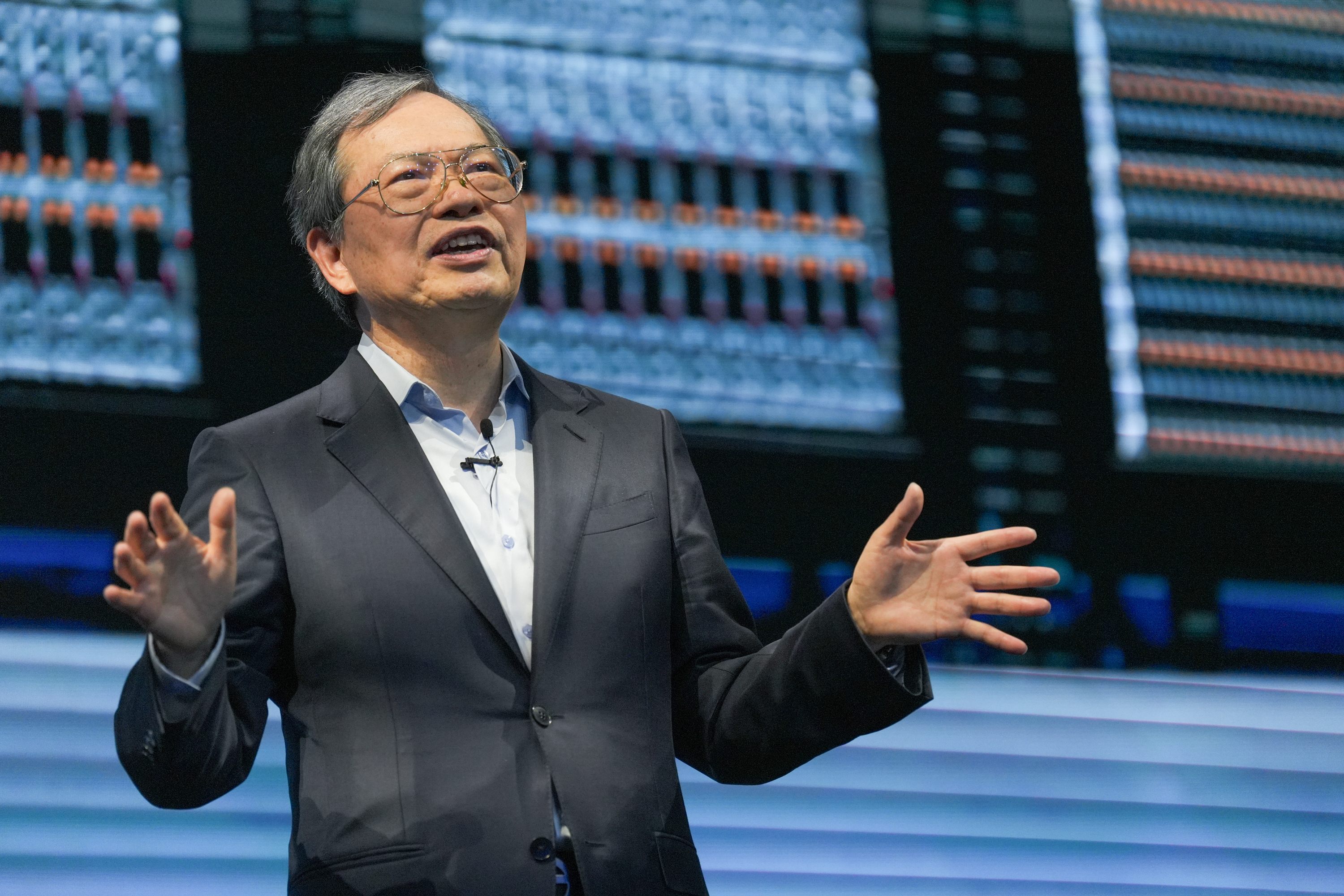A surge of investor interest in all things artificial intelligence last year yielded world-historic levels of wealth creation, driving shares in Nvidia, the Santa Clara-based chipmaker, from $280 to nearly $900 a share and sending its market value past $2 trillion—that’s “trillion” with a T.
But just a few exits down Highway 101 in San Jose, an under-the-radar company with close ties to Nvidia had an even better year on a relative basis. Super Micro Computer, as it is legally known, which builds servers and equipment for data centers, saw its share price increase more than 12-fold—from $112 to nearly $1,030 a share—over the same period.
Booming demand for the company’s hardware pushed Supermicro CEO Charles Liang onto the Forbes list of the world’s billionaires for the first time. The business magazine estimated Liang’s net worth to be $6.1 billion, making him the richest tech newcomer to join the list. His net worth ranks him number 477 out of the 2,781 billionaires tallied by Forbes.
Supermicro’s market cap, meanwhile, vaulted from under $6 billion a year ago to nearly $60 billion. It’s a stunning rise for a company now over three decades old.
Liang, who was born and raised in Taiwan and immigrated to the United States for his master’s degree, founded Supermicro in 1993, the same year fellow Taiwanese immigrant Jensen Huang founded Nvidia from a Denny’s in San Jose. Huang’s estimated net worth jumped to nearly $58 billion this year, according to Forbes, launching him into the world’s top 20 wealthiest individuals.
San Francisco might be the face of the exploding AI revolution, with consumer-facing companies such as OpenAI and Anthropic, but the industry’s backbone is in the South Bay, where the infrastructure needed to power the technology is built.
Today, the two companies are more intertwined than ever, with Nvidia chips populating Supermicro’s servers. Experts say the two firms enjoy a competitive advantage because their unique product designs are not easily replicable by competitors.
Before AI, Nvidia was a dominant supplier of chips that improved computer graphics. Supermicro steadily grew in the 2000s as the use of cloud computing and data centers expanded.
The two companies’ proximity to each other has always been mutually beneficial. “Our engineering teams are able to work together from early morning to midnight,” Liang told the Wall Street Journal last month. Supermicro did not immediately respond to a request for comment.
As demand for AI products exploded last year, Supermicro had an opportunity to claim market share since it was already positioned to quickly ship servers in large quantities. According to its latest quarterly report, AI-oriented servers made up more than half of its nearly $3.7 billion in sales.
To continue the momentum, the company is spending big on real estate to increase its manufacturing and shipping capacity as many other tech giants trim their workforces and office footprints.
Last year, Supermicro started leasing extra warehouse space in a vacant building near its headquarters that was formerly a Mayan-themed Fry’s Electronics store.
Then, in February, the company spent $80 million to buy the entire 19.7-acre plot of land underneath the store in San Jose at 550 E. Brokaw Rd. The site was previously entitled for 2 million square feet of offices that never materialized.
According to a regulatory filing, Supermicro said it is acquiring discretionary entitlements for a potential redevelopment of the property—most likely for its own use.
“I like San Jose, and most of our people like San Jose,” Liang told the Silicon Valley Business Journal in June. “Nobody wants to move away—we’re growing so much.”
However, Supermicro’s AI-fueled growth has not come without its costs. For one, the company has to buy expensive graphic processing units that eventually go into its server products from Nvidia. In its most recent quarter, Supermicro spent a record $610 million on those materials, taking a significant bite out of its cash flow, which has been negative in five of the last 10 fiscal years.
To raise funds, the company had to sell $1.5 billion worth of stock in a public offering last month.
But Supermicro’s success means that Liang is not the only billionaire in the family. His wife and co-founder, Sara Liu, also made her first appearance on Forbes’ list with an estimated net worth of $1.4 billion.
Correction: This piece has been corrected to accurately reflect how much Supermicro’s stock price has risen.
